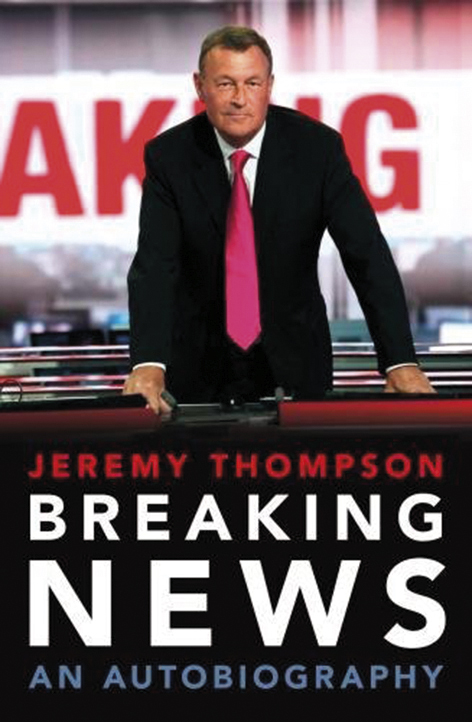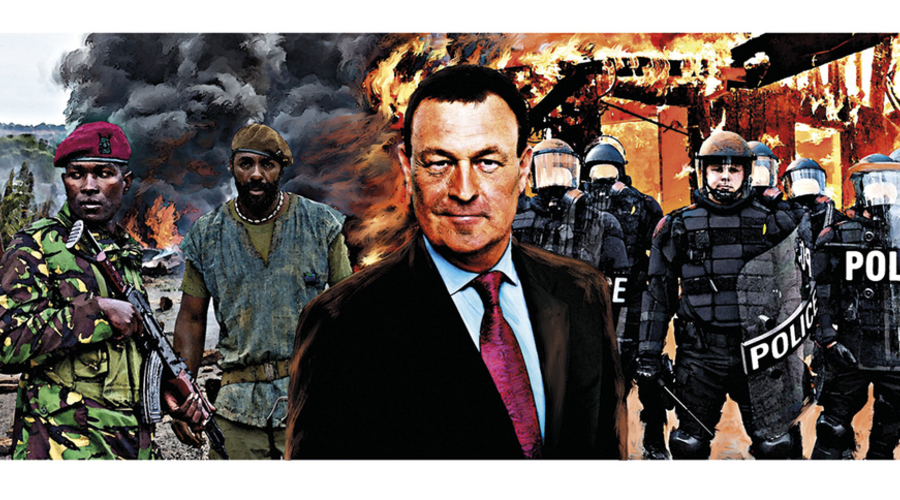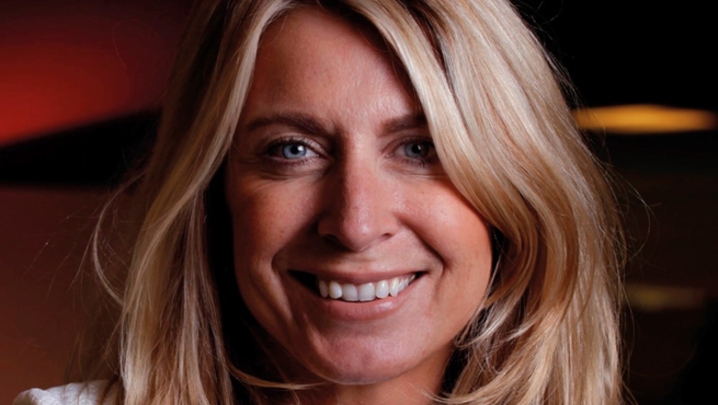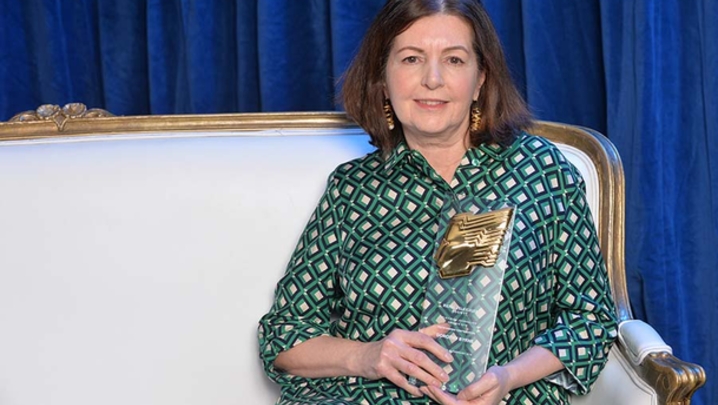Intrepid and fearless, Jeremy Thompson epitomised the globe-trotting reporter, says Simon Bucks
If television news had a golden age, it was surely the three decades from around 1980. Driven by videotape newsgathering, growth in satellite capacity and buoyant budgets, news bulletins often drew audiences of 15 million. They were the main way that most people got their news. This was Jeremy Thompson’s time, and mine, too.
Thompson came up the old-fashioned way: straight from school into local newspapers and radio before BBC TV, ITN and Sky News. His father, an insurance man, was horrified at his son’s career choice, warning that only jazz musicians were a worse actuarial risk.
We joined ITN around the same time. I was in the poor bloody infantry of newsroom producers, he was a sports correspondent en route to a freewheeling career roaming the world’s hotspots. He reported and presented on more than 20 wars, coups, terrorist outrages, natural disasters and a genocide.
Along the way, he achieved the iconic status of becoming known simply by his initials. With his honey-and-gravel, high-decibel drawl – Leslie Phillips crossed with a foghorn – JT epitomised the go-anywhere, buccaneering television reporter. It used to be said that it wasn’t a proper war until Kate Adie turned up; JT inherited that mantle. In regulation foreign correspondent fatigues, an Arab shemagh knotted stylishly round the neck, he filled the role suavely and effortlessly.
Thompson is a consummate storyteller, and this autobiography is a catalogue of good stories (and some braggadocio) of the sort reporters tend to swap over a few beers. There were certainly plenty of beers and some low-key hell-raising; CNN’s Robert Wiener noted: “I have never seen anyone party harder than Jeremy Thompson.”
JT epitomised the go-anywhere, buccaneering television reporter
TV journalism is dominated by logistics, and much of Thompson’s narrative describes the challenges of reaching the story, getting it on air and escaping unscathed. Perhaps most terrifying, and bizarre, was a cloak-and-dagger flight from Malawi to Mozambique to interview Afonso Dhlakama, leader of the Renamo resistance movement.
Their ancient, single-engine plane was piloted by a Rhodesian veteran on a Christian mission. His wife explained that they had rescued the old kite from a scrapyard and God had “helped to make it work and taught us to fly”.
Thompson has no doubts on the war reporter’s classic dilemma: should you embed with a friendly military unit that will protect you but also dictate your journalism? Embedding is favoured by the armed forces because it allows them, in one general’s militarese, to dominate “the information environment”.
For Thompson, embedding is anathema: he argues persuasively that the journalist’s natural state is to be “independent and unilateral”. Nevertheless, when our ITN friend Terry Lloyd – also operating independently – was killed in the Iraq War, a shocked Thompson bunked up alongside the Desert Rats, feeling “safer within sight of British squaddies… not embedded but in touch”. In a shooting war, discretion is the better part of valour.
It is a truism that things rarely happen conveniently for TV news cameras; they invariably need “arranging”. Set-up shots are in the grammar of the business, but two episodes raise a moot point – how much arranging is OK?
In Alabama, the governor decided to revive chain gangs to demonstrate his toughness on crime, and staged a photo-call – an obvious, but “irresistible”, publicity stunt. JT added a delicious embellishment, encouraging the hapless inmates to sing spirituals as they broke rocks. It was, he says, “pure TV magic”. This, perhaps, was justification enough.
Likewise, in Sierra Leone, Thompson attempted to interview a coup leader, Captain Valentine Strasser. He was a man of few words – so few that his answers were mainly mumbled monosyllables.
JT – a sympathetic reporter – helped write a script and coached his delivery. Needing more pictures, he persuaded Strasser and his fellow officers to sweep the streets in a symbolic act to show how they would clean up corruption. “You couldn’t make it up,” observes Thompson, apparently without irony. Small wonder that Strasser invited him to be his information chief, an offer that Thompson swiftly declined.
In truth, the title Breaking News is a partial misnomer. Only the arrival of CNN, and then Sky, enabled TV to report in real time. Before that, news rarely broke, but emerged as film, and later tape, which arrived hours, sometimes days, after it was shot, often via circuitous routes.
Reporting a coup in Fiji, Thompson evaded the authorities by ingeniously unspooling his videotape from its cassette, hid it in cigarette cartons and bribing departing passengers at the airport to hand-carry it to Sydney for onward transmission.
The real turning point was Kosovo, in 1999, when the Sky News boss Nick Pollard bet the ranch by sending four satellite trucks by road to the Balkans.
It allowed Thompson and colleagues to report, as it happened, the British contingent of the Nato peacekeeping force rolling across the countryside. For Sky, and JT, it was a major win, netting a well-deserved RTS award.
Things did not always go so well. At ITN, I had a walk-on part in a bad day, which still clearly rankles deeply with JT. The student demonstrations in China in 1989, demanding greater freedom and democracy, grew into a mass movement until the army was sent in to suppress it.
When the protests subsided, Thompson and crew were pulled out and replacements failed to arrive. His version is that, after six weeks in Beijing, it was decided the team needed some “rest and recuperation”.
Doubtless that was the message from the foreign desk. The truth, in my memory, was less benevolent. As a programme editor, I had attended a fateful meeting when it was decided that the escalating costs were unsustainable.
Either way, when the People’s Liberation Army rolled into Tiananmen Square, massacring protesters, JT and team were relaxing in the Hong Kong Foreign Correspondents Club. It was, he says, a “genuine snafu”, one of few regrets in his 50-year career.
Mine, too. I was the duty programme editor, scrambling to rescue something from CNN’s crumbs. It was a rare humiliation for us, but worse, as Thompson observes, the might of the entire international media had been powerless to prevent the spark of democracy being snuffed out.
From his rugby playing days, through international sports reporting, JT clearly felt most comfortable with “good blokes”, among them interviewees who became mates, such as Ian “Beefy” Botham and the South African rugby star Francois Pienaar.
He, rightly, devotes an entire chapter in tribute to another very good bloke, the cameraman Mick Deane, his long-time partner on scores of stories. Mick, a gentle giant, was tragically shot dead in Egypt – one of several colleagues and friends felled in the line of duty.
The senseless murder hit us all, but it affected JT particularly badly. He confesses to shedding rare tears when told the news.
Superficially, on camera and in person, Thompson exudes a faintly British colonial air yet, surprisingly, the man who most impressed him was Nelson Mandela. They first met when Thompson was resident correspondent in Johannesburg and went on to become genuine friends.
Thompson admits he was rarely emotional about stories – it was “just business” – but Mandela’s death was an exception. It felt, he says, like the end of an era, the “closing of a major chapter in my career”.
JT’s string of awards (helpfully listed at the back of the book) is testament to his success. Breaking News is a hymn to the pre-internet era before “fake news”; a rollicking, roller-coaster account of the glamorous glory days of TV reporting, in which JT had a starring role.
Forgive the cliché, but I doubt we’ll see his like again.

is published by Biteback, priced £20.00







